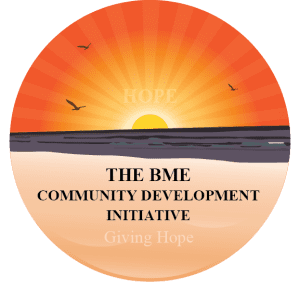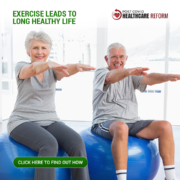A Father’s Empty Chair

On a rainy evening in Birmingham, 17-year-old Aisha set the table for dinner, knowing one chair would remain empty. It had been two months since her father died of a sudden heart attack. In that time, Aisha had barely spoken at home. She went through the motions of school, numb with grief, convinced that nothing could alleviate the darkness that fell over her family.
Her father had been her rock who was going to help her with maths, or tease her about her favourite TV show, or simply ask how her day went? As she placed his photo on the mantel that night, Aisha felt a wave of bitterness. Why him? Why us?
she thought, tears welling up. Seeing her distress, her mother quietly handed her a notebook and pen. “Let’s try something, darling,” her mum said softly. “Tonight, before bed, write down three things you are grateful for. It might feel silly, but humour me.” Aisha wanted to fling the notebook away grateful?
How could her mum even use that word now? But to please her, Aisha later sat on her bed, stared at the blank page and racked her brain. She almost gave up. Yet, slowly, she wrote: I’m grateful for the 17 years I had with Dad. Then: I’m grateful Mum is here for me. It was hard to think of a third. Finally: I’m grateful Dad taught me how to be strong.
As she wrote that, she realised it was true, her father had always modelled resilience and positivity in tough times. The next day, Aisha wrote three different things. Some were small a friend’s joke, a good book, some larger a scholarship opportunity, her close-knit extended family. Day by day, through tears and smiles, Aisha’s list grew.
Gratitude did not erase her grief, but it started illuminating pinpricks of light in her darkness. At her father’s funeral, Aisha even mustered the courage to speak, saying she was grateful to have been his daughter and would carry forward his legacy of kindness. Many in attendance were moved, noting that Aisha’s words, though born of pain, radiated hope.
This real story as shared by a Birmingham counsellor who worked with bereaved teens shows how gratitude can coexist with grief and guide someone through it. Aisha found that focusing on what her father gave her, rather than solely what she lost, allowed her to feel he was still a positive presence in her life.
She began volunteering at a heart disease charity in his memory an act of gratitude and purpose that further aided her healing. Psychologists call this post-traumatic growth, where individuals, after tragedy, find new meaning and appreciation for life.
Gratitude is a catalyst for that growth. Even amidst our darkest times, there are things, however small that we can cling to and say “thank you” for, and those become like lifeboats keeping us afloat in stormy seas.
Gratitude in Adversity
History and current events abound with examples of gratitude shining in adversity. During WWII, amidst the Blitz, many Londoners kept morale by grateful reflection. Diaries from the era note people giving thanks for each day of safety, for neighbours who helped each other, for a cup of hot tea amid the ruins.
That gratitude did not stop bombs from falling, but it steeled their resolve to carry on and not lose humanity. Fast forward to the COVID-19 pandemic: nightly claps for NHS workers were a collective expression of gratitude that united streets and provided emotional uplift during a frightening period.
People put signs in windows thanking delivery drivers and nurses. These acts recognised the good heroism, community in a bad time. They reminded everyone that even when life is far from normal or fair, there are reasons to persevere, and people to appreciate.
In personal hardships too illness, unemployment, heartbreak gratitude can be a lifeline. Many cancer patients, for instance, keep gratitude journals to focus on living, not just the disease. They might note gratitude for a supportive spouse, a caring nurse, a day of feeling okay. It is not denying pain. It is balancing it with moments of grace.
Research backs this up: a seminal study found that people who kept gratitude journals for just 3 weeks reported significantly better mental health, even if they were in the midst of major life challenges, compared to those who did not practice gratitude.
Gratitude seems to activate coping mechanisms by shifting perspective. It is as if saying “thank you” for what remains gives one the strength to face what is gone or what hurts. Of course, gratitude is not a cure-all. It won’t bring back a loved one or single-handedly rebuild a life shattered by disaster.
But it can be, as one survivor of the Grenfell Tower fire said in an interview, “the little spark that keeps you getting out of bed each day.” That survivor, having lost his home and neighbours, said he survived the dark nights by mentally listing things he was grateful for, that his family got out alive, that donations poured in to help them, that volunteers offered comfort. Those thoughts did not eliminate his trauma, but gave him the will to keep going and eventually start anew.
The Humbling Power of Gratitude
Gratitude also humbles us in a healthy way, especially in adversity. It reminds us that we are recipients of grace and generosity we did not earn. Realising that can foster resilience by connecting us to something larger be it a faith in God, the kindness of humanity, or just the sense that the universe is not purely cruel.
Humility born from gratitude can be empowering: we accept help more readily and acknowledge we are not alone. For Aisha, being grateful for her mum’s support allowed her to lean on her mum without shame during grief, which in turn helped her heal better than isolating would have. For Craig Stanland from Article 2, gratitude humbled him to recognise those who stood by him and that humility was key to rebuilding relationships he had damaged with ego and entitlement.
We see this in communities too. A neighbourhood hit by a flood comes together in mutual gratitude “I’m so thankful my neighbour had a boat to rescue us,” “We are grateful to the church for providing meals.”
This communal gratitude not only boosts morale but strengthens bonds and collective efficacy. People who have been through hardship together, expressing gratitude for each other, create tight-knit support networks that outlast the crisis. It is a form of social resilience.
There is also a moral dimension: gratitude can make us better stewards of what we have left. Someone grateful for the environment’s beauty even after witnessing ecological destruction might be more driven to protect it. On the flip side, ingratitude can make us reckless or wasteful if you don’t appreciate something, you are more likely to toss it aside or exploit it. Gratitude for adversity overcome can inspire one to help others facing similar trials. Many charities are started by people grateful to have survived something. They channel that thankfulness into action to ease others’ suffering. Mothers Against Drunk Driving (MADD), for example, was co-founded by a woman who lost her child but was grateful for the support she received in her grief, which propelled her to advocate to save others.
Everyday Gratitude Practices
While extraordinary adversity highlights gratitude’s importance, it is in everyday life that we must cultivate it so it is available when times get tough. Think of gratitude as a muscle, you build it in calm times so it is strong for heavy lifting in rough times.
Simple practices can weave gratitude into our routines: say grace religious or secular before meals, not out of obligation but to pause and acknowledge the food and the hands that prepared it.
End the day with a mental or written recap of what went right however minor. Start meetings or classes with a quick round of positives, it snaps people out of pessimism and primes them to cooperate.
Some families use the “gratitude jar” method: throughout the week, family members write little notes of what they are thankful for and put them in a jar, then read them together later.
This can be fun and revealing it shows how the small kindnesses we do matter a note might say “I’m grateful my brother helped me with my homework on Tuesday”. Knowing that encourages more kindness, as discussed in the kindness articles.
Digital life offers opportunities too: many people have taken to social media not just to vent or boast, but to share daily gratitude’s or #ThankfulThursdays posts. Such content might seem sappy to cynics, but it garners positive interaction and can inspire others to reflect on their own blessings.
Even in tough news cycles, seeing an online friend say “Today I’m grateful my elderly neighbour recovered from COVID” or “thankful for a rainy day and a cup of tea” is a gentle nudge that life isn’t all doom. Of course, one must be careful not to veer into toxic positivity being grateful does not mean ignoring genuine problems or telling others to “just be grateful” when they are hurting.
It is a personal tool for balance, not a hammer to hit others over the head with. Tact and empathy matter. For instance, Aisha’s mum wisely suggested gratitude after giving her space to mourn, not as a dismissal of her feelings.
Smoothing Life’s Bumps
Life is a journey with both smooth highways and pothole-riddled backroads. Gratitude is like shock absorbers on that journey. It does not remove the bumps but makes them less jarring, protecting us from too much breakdown when the road gets rough.
It does so by keeping our eyes on guiding lights: love, memories, values, possibilities. When we acknowledge those, we navigate hardships with an inner compass that points towards healing and meaning.
Think back to someone you admire who went through a lot. Chances are, you will recall them expressing gratitude amidst it all “I wouldn’t have made it without my friends,” “Going through that taught me what truly matters.” Gratitude colours the wisdom of survivors. It can also be the spark that turns mere survival into thriving. It did for Craig in prison, for Aisha in grief, for communities facing disasters. It can for each of us, too, if we let it.
Perhaps the final word on gratitude in dark times should come from Viktor Frankl, a Holocaust survivor, who wrote about finding meaning in suffering. In the concentration camp, he noted how some prisoners, despite being stripped of everything, would share a crust of bread and whisper thanks for one more day alive or a moment of sunset through the wire. Frankl suggested that everything can be taken from a man but one thing: the last of the human freedoms to choose one’s attitude in any given set of circumstances. Gratitude is one such attitude a choice to see light even if only a flicker. It is not always easy to choose, but when we do, it can illuminate even the darkest of nights and lead us toward a dawn of renewed hope.




